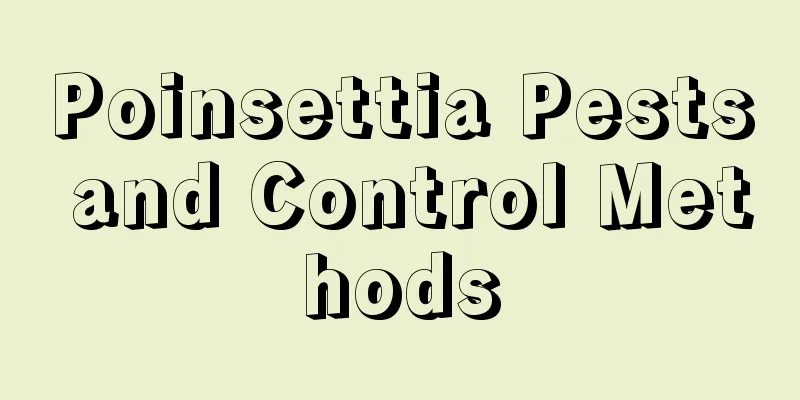What are the cultivation methods and precautions of chrysanthemum

Chrysanthemum Introduction Chrysanthemum is a plant of the Asteraceae family and the genus Chrysanthemum. According to the cultivation form, it is divided into multi-headed chrysanthemum, single-stem chrysanthemum, large upright chrysanthemum, cliff chrysanthemum, artistic chrysanthemum, desk chrysanthemum, etc. According to the appearance of the petals, it is divided into round-embracing, retreated-embracing, reverse-embracing, random-embracing, exposed-heart-embracing, and flying-noon-embracing, etc. The methods of chrysanthemum propagation include stem cuttings, division, grafting, layering and tissue culture, among which cutting propagation is usually the main one. Chrysanthemum cultivation methodChrysanthemum is a short-day plant that can bloom early under short days. It prefers a warm and humid climate and is suitable for growing in an environment of around 20 degrees. It has a certain degree of cold resistance, and its rhizomes can overwinter underground in severe winter. Watering methodIn spring, the chrysanthemum seedlings are young, so watering should be controlled. In summer, the evaporation is large, so watering is necessary. Watering can be done in the morning and evening, and water can be sprayed on the branches and leaves of the plants and the surrounding ground. Reduce watering in autumn, otherwise it will cause the plants to grow wildly. Watering must be strictly controlled in winter. In addition, water less or no watering on rainy days. Follow the principle of not watering unless the soil is dry, and watering thoroughly when watering. Fertilization methodWhen planting chrysanthemums, you can apply enough base fertilizer to the soil, and then apply nitrogen fertilizer every 10 days. When buds appear at the beginning of autumn, apply fertilizer and water with a slightly higher concentration every 7 days. When the buds are about to bloom, you can apply fertilizer and water once, and then stop fertilizing. Pruning methodsWhen the height of the chrysanthemum is 10-15 cm, you can retain 4-5 leaves at the base and remove all the upper leaves. When 5-6 new leaves grow, pinch the top again so that the plant retains 4-7 main branches. Pinching can make the plant branch, control the height and shape of the plant, and also remove excessive branches, overly vigorous branches, and overly weak branches. When buds appear in September, only one bud should be left on the top of each branch. Precautions for chrysanthemum cultivationCommon diseases during the maintenance of chrysanthemums are leaf spot and wilt. It is necessary to trim the diseased leaves in time, reduce the humidity, and sprinkle lime powder on the diseased holes or spray carbendazim and Bordeaux mixture for prevention and control. Common insect pests include aphids, thrips, fall armyworm, beet armyworm, tomato armyworm and two-spotted leaf worm. It is necessary to spray the pesticides in time and remove the weeds as soon as possible to reduce bacterial growth. |
<<: How long is the growing season for spring corn?
>>: How long is the growing period of pineapple?
Recommend
Succulent planting technology
Necessary for growth Soil selection The soil for ...
How to prune potted mint
When to prune potted mint It is more appropriate ...
What is the best month to plant freesia bulbs?
When to plant freesia bulbs Freesia bulbs are afr...
How to prune roses
Rose pruning time Roses need to be pruned several...
What fertilizer to apply to ground-planted roses in spring
1. What fertilizer to apply When planting it in t...
What soil is suitable for growing kiwi fruit?
Introduction to Kiwifruit Kiwi is a positive plan...
Diseases and Pests of Marigold and Their Control
Diseases of marigold Leaf spot Marigolds often su...
Loofah planting method and planting time
Luffa is not only a versatile vegetable that can ...
How to care for the Lotus Lantern in winter
Maintenance of the Lotus Lantern illumination The...
Red Rose Flower Meaning
1. Flower Language Red rose is the most common va...
How to trim alum root to look good
When is the right time to prune alum roots? Pruni...
What flowers are suitable for growing in Hegang? What are the city flowers and trees?
1. Climate characteristics of Hegang Hegang has a...
How to fertilize the money tree
1. Fertilization principles The money tree should...
The Flower Language of Narcissus
1. Respect Because historically, daffodils are a ...
In which month should potted jasmine be pruned?
1. December Jasmine needs to be pruned when it is...









